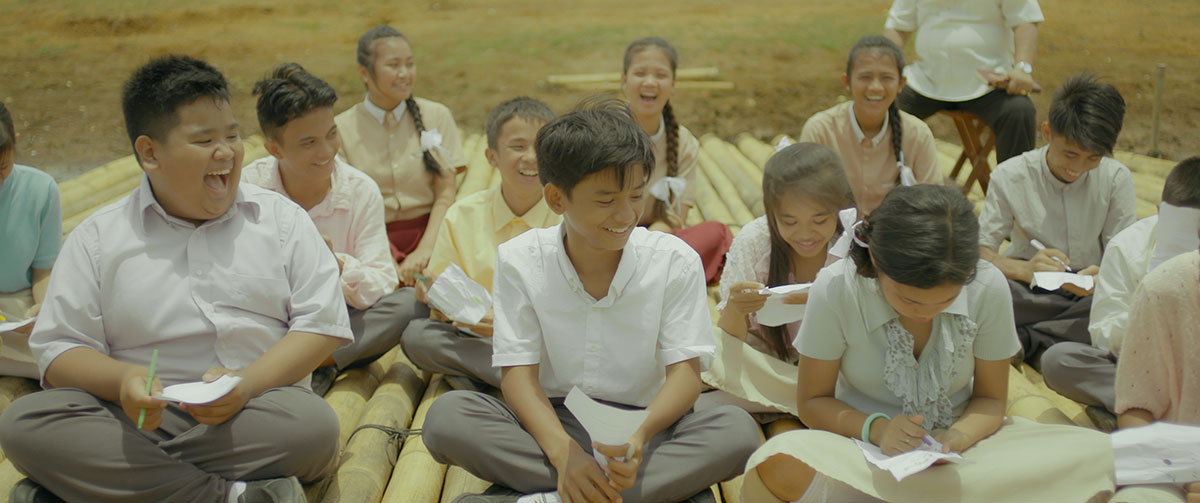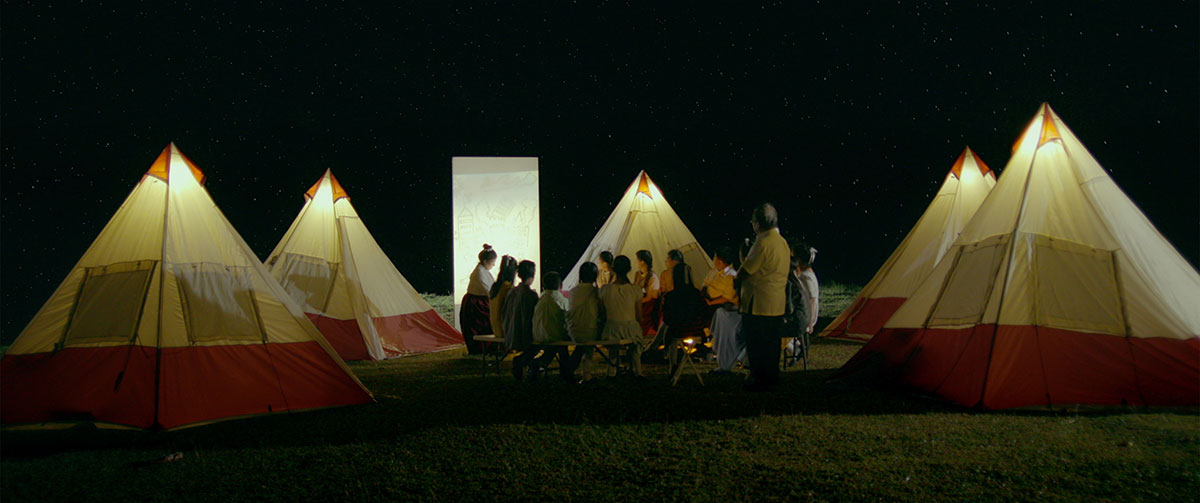by FATIMA B. BADURIA
FAITH IS poles apart from the idea of fear, but shallow beliefs can make the two unintelligible. In a country dominated by Christian beliefs, such ideological impact is a culture of crude moral standards wherein children can easily fall prey to.
Directed and written by Kyle Nieva, Kids on Fire is a satirical depiction of children’s subjugation to Christian beliefs by people with little faith themselves. Within a short period, the film tells a story of young people with ingenious minds, wide eyes, and open palms discovering beliefs. Ironically, it is mostly fear that they find in their hands.

In a religious camp, young J.C. (Alexis Negrite) finds himself at a loss after being immersed in Christian teachings for days. Though willing to be imbued with the doctrines, his prepubescent nature rises above him. In the constant clash between conforming to morality and secretly addressing his sexual impulses, he is left perplexed.
The forewarning of damnation has been vivid and the compulsion to holiness is striking. Adding to his mind’s puzzles are camp leaders Sister Evelyn (Mystica) and Brother Wally (Ces Aldaba). Ironically, despite being religious instructors that push children to a lofty measure of righteousness, they seem to hold themselves to a much lower standard. J.C. witnesses this pretense and he accumulates more of life’s paradox than when he arrived at camp.
The plot surprisingly engendered humor but in an unconventional manner. Unlike typical comedy movies relying on punchlines, the film maneuvered its frivolity through quirky, frisky sounds. Its witticism is rarely framed in dialogues. Stunningly, the sounds as cues for laughter are also effective, showing how fresh techniques can improve the delivery of the jokes.

However, given the theme, its humor is based on supposedly serious notes. Trudging atop Christian beliefs, moral crisis, and issues on children, the jocular touch can be inapt. Although the prompts for laughter are compelling, the reaction from viewers is mostly nervous chuckles. Still, it shows how the usual Filipino can find ways to quip and laugh even in the narrowest openings.
Looking past the dark humor, the scenes reflect actual problems. Not only does it illustrate indoctrination and scrupulosity in its superficial sense, but it provides a glimpse of possible repercussions.
In particular, fear as the core of faith can have unexpected ends. When one focuses on prescribed punishments, it prioritizes the escape from judgment— even here on earth. Subconsciously, people are led to believe that wrongdoings only become sins once brought out in the open.
Thus, children like J.C. are more vulnerable not to their misdeeds, but to the offenses against them. When abuse or transgression is done to them in private, it is not a sin but a secret. These consequences are not as minor as to only affect Christian groups. It causes ripples to the entire society, hence making one wonder about the kind of culture being cultivated by many.
In this striking satire, viewers find themselves shifting between various moods: serious, mystified, and amused. In less than twenty minutes, the film is able to pull its audience into a stimulating and comic fiction, though not distant from reality.
As a comedic movie, it is impressively creative and substantial. Overall, The film’s aim is not to solely be entertaining, but to be the voice of dark truths. F



